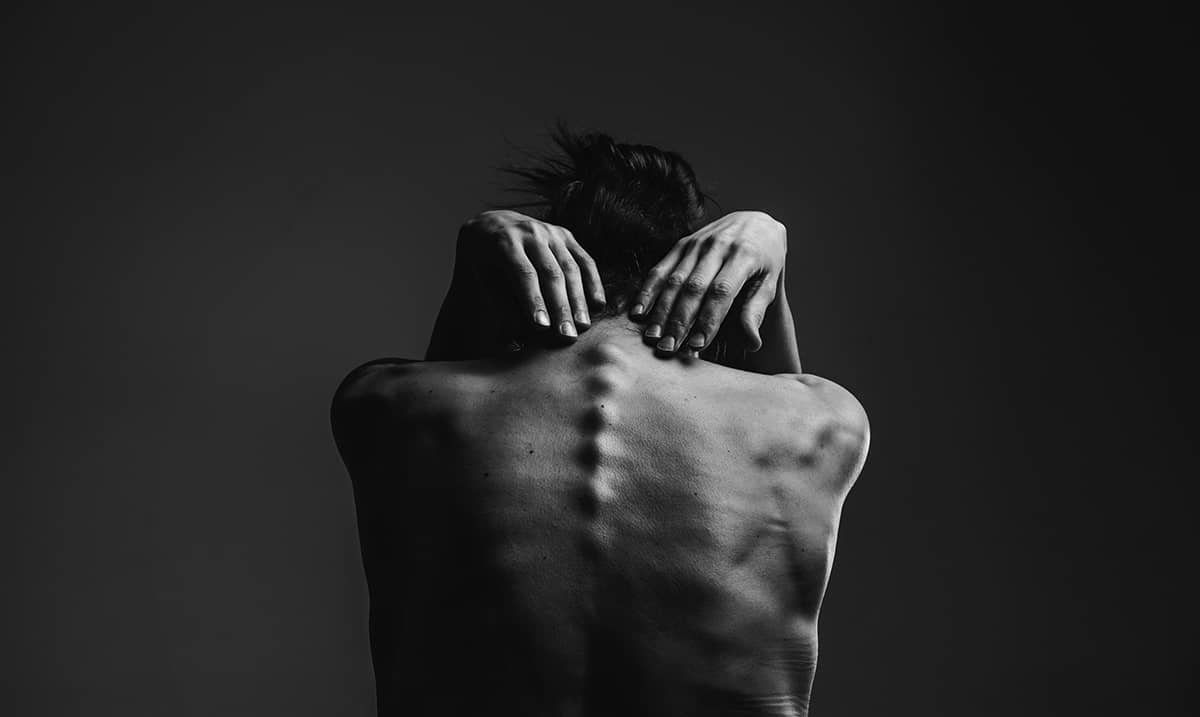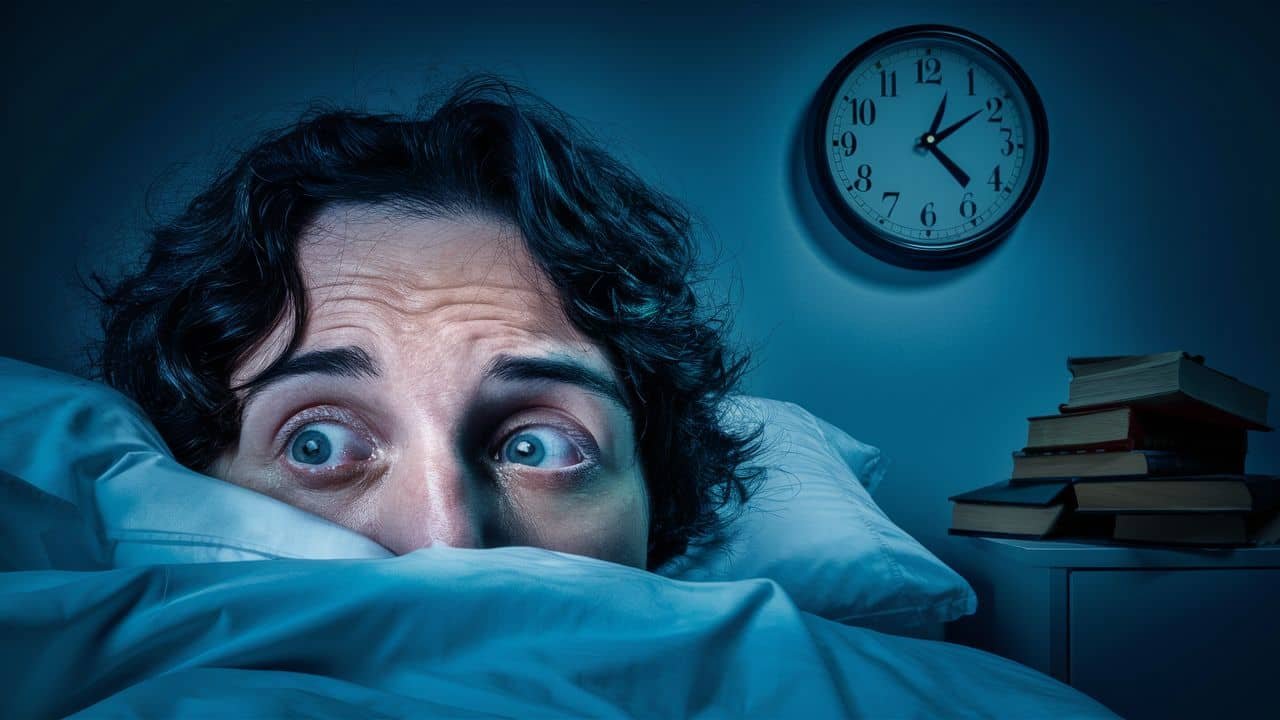Top 10 Most Frequent Physical Symptoms of Depression

Did you know that according to the Word Health Organization, one in every ten people (5% of the total adult population) worldwide is estimated to be affected by depression, making it one of the most common mental health disorders?
This staggering statistic highlights the importance of recognizing and addressing the symptoms of depression, which can often be overlooked or misunderstood.
In this article, we’ll explore the top 10 most frequent physical symptoms of depression, helping you understand the challenges many people face and providing insights that could help you or someone you know.
It’s essential to recognize that depression can affect us all differently, and these symptoms can sometimes be mistaken for other health issues. By familiarizing yourself with these symptoms, you’ll be better equipped to identify potential signs of depression in yourself or your loved ones.
By the end of this article, you’ll have a better understanding of the physical symptoms of depression, and you’ll be better prepared to recognize and address this common mental health issue.
✅FACT CHECKED: This article is fact checked. Numbers in brackets have links to scientific studies and trusted websites. Our goal is to make Foodnurish a trusted medium of health information. If you believe that something is wrong and needs to change / corrected, feel free to contact us.
Physical Symptoms of Depression
Here’s a table summarizing the most frequent physical symptoms of depression and why they might occur when someone is experiencing depression:
| SYMPTOM | DESCRIPTION |
|---|---|
| Chronic Joint Pain | Depression can magnify pain, making everyday living more difficult. Changes in the body can make a person more sensitive to pain. [1] |
| Limb Pain | Depression can cause pain, and pain can cause depression. This creates a vicious cycle where pain worsens symptoms of depression, and then the resulting depression worsens feelings of pain. [1] |
| Gastrointestinal Problems | Depression can affect neurotransmitters in the brain and gut called serotonin, leading to stomach problems such as nausea, bloating, diarrhea, or constipation. [2] |
| Tiredness / Fatigue | Depression can cause low-energy in many ways: it may make it more difficult to sleep, affect eating habits, disrupt exercise routines, and cause general stress in life. [3] |
| Sleep Difficulties | Depression can disrupt sleeping patterns, leading to insomnia or oversleeping, which can cause feelings of fatigue. [4] |
| Appetite Changes | Depression can affect your diet, leading to loss of appetite or an overwhelming desire for sweet foods that have less nutritional value. [5] |
| Sexual Problems | Depression can affect the sex-related chemicals in the brain, leading to low or missing sexual desire. Antidepressants are also directly related to impotence. [6] |
| Lack of Energy | Depression can lead to low energy because it impacts the neurotransmitters associated with alertness and reward systems. [7] |
| Speaking Slower Than Usual | Depression can cause changes in speech patterns, making speech lower, more monotone, more labored, and with more stops, starts, and pauses. [6] |
| Lack of Socializing / Going Out | Depression can make socializing feel exhausting and overwhelming. The more a person isolates themselves, the more depressed they become. [6] |
Keep in mind that these are general observations and can vary from person to person.
1. Chronic joint pain
Depression and chronic joint pain are closely related. Depression can magnify pain, making everyday living more difficult. Changes in your body due to depression can make you more sensitive to pain.
This sensitivity can lead to an increase in chronic joint pain. Additionally, the stress and anxiety caused by chronic pain can further intensify depressive symptoms, creating a vicious cycle.
2. Limb pain
Depression can cause limb pain due to the connection between pain and mood. The neurotransmitters serotonin and norepinephrine, which influence both pain and mood, play a crucial role in this.
Dysregulation of these neurotransmitters is linked to both depression and pain, creating a bi-directional relationship where depression can intensify pain, and heightened pain levels can exacerbate depression.
This connection is profound, as evidenced by the fact that antidepressants targeting serotonin and norepinephrine reuptake are often used as primary treatments for depressed patients experiencing physical symptoms like limb pain.
3. Gastrointestinal problems

Depression can cause gastrointestinal problems due to the following reasons:
- Depression can lead to changes in appetite, such as decreased or increased appetite, which can affect the digestive system .
- The neurotransmitters serotonin and norepinephrine, which are dysregulated in depression, also play a role in the regulation of gastrointestinal function.
- The gut-brain axis, which involves bidirectional communication between the gut and the brain, is disrupted in depression, leading to gastrointestinal symptoms.
4. Tiredness / Fatigue
Depression can disrupt sleep patterns, leading to difficulty falling asleep or staying asleep, resulting in poor quality sleep and fatigue.
Depressed individuals often experience a lack of energy and motivation, making it challenging to engage in daily activities and contributing to feelings of tiredness.
The physical symptoms of depression, such as moving or speaking more slowly than usual, can also contribute to fatigue.
Depression can affect appetite and weight, with decreased appetite being a common symptom. This can lead to inadequate nutrition and energy levels, contributing to fatigue.
Overall, the combination of disrupted sleep, lack of energy, physical symptoms, and changes in appetite can contribute to the tiredness and fatigue experienced by individuals with depression.
5. Sleep Difficulties

Depression disrupts the delicate sleep-wake cycle. Chemical changes in the brain linked to mood can make it hard to fall asleep or stay asleep.
Negative thoughts can also race at night, keeping you awake. This lack of quality sleep can worsen depression, creating a cycle that’s tough to break.
6. Appetite changes
Depression can lead to changes in appetite due to the impact of stress hormones on the brain’s reward centers. These hormones can suppress the desire for food, leading to a decrease in appetite.
Additionally, depression can make it difficult to focus and remember to eat, leading to forgetfulness or neglect of meals.
This can result in weight loss or malnutrition, which can further exacerbate depressive symptoms.
7. Sexual Problems
Depression can significantly impact sexual health. Here’s why:
- Neurotransmitters: Sexual desire begins in the brain, with neurotransmitters playing a crucial role. In depression, these brain circuits don’t function optimally, affecting communication and blood flow to sex organs.
- Antidepressants: Some medications used to treat depression (like selective serotonin reuptake inhibitors, SSRIs) can cause sexual side effects. These drugs alter neurotransmitter pathways involved in both mood and sexual response.
- Common Issues: Depression often leads to sexual problems such as erectile dysfunction, low libido, and difficulty achieving orgasm.
Remember, managing these effects is possible without compromising treatment¹²³. Seek guidance from a healthcare professional to address both mental health and sexual well-being.
8. Lack of energy
Depression causes a lack of energy due to various interconnected factors.
- Depression affects neurotransmitters like dopamine, norepinephrine, and serotonin, leading to imbalances that contribute to extreme fatigue.
- Depression can disrupt sleep patterns, resulting in difficulty falling asleep or staying asleep, which further impacts energy levels.
- Changes in appetite due to depression can also affect energy levels, with some individuals experiencing a loss of appetite or overeating, both of which can lead to fatigue.
- Moreover, the chronic stress associated with depression can deplete energy levels and exacerbate feelings of tiredness.
9. Speaking slower than usual
Depression can cause speaking slower than usual due to the cognitive and emotional changes that occur during the condition.
Depressed individuals may experience a decrease in motivation, energy, and concentration, which can make it more difficult to process and express thoughts quickly.
Additionally, the emotional numbness and apathy associated with depression can lead to a slower, more monotone speech pattern.
This can make it harder for others to understand and engage with the depressed individual, further exacerbating their feelings of isolation and disconnection.
10. Lack of socializing / going out
Depression can zap your energy and motivation, making socializing feel exhausting. Simple tasks feel overwhelming, and the idea of putting on a brave face for others can be draining.
Social anxiety, often linked to depression, can fuel fear of rejection or negative judgment. Depressed people may also feel worthless or like a burden, leading them to isolate themselves.
This withdrawal, ironically, deepens loneliness, worsening depression’s hold.
Organic Matcha Green Tea Powder, 1 Pound
- Micro Ingredients Organic Matcha Tea Powder, Pure Matcha Powder Green Tea, 1 Pound, Culinary Grade and Authentic Japanese Origin.
- Best Superfood – Matcha is Rich in Antioxidants and is a Great Source of Natural Energy and Mental Clarity.
- Rich in Caffeine, Gradually Aids with Digestion, Healing, Cleansing and Contains Natural L-Theanine, Provides Good, Clean Energy.
⭐⭐⭐⭐⭐ | 4.8 (165 reviews)
Psychological Symptoms
Other than physical symptoms – which are easier to observe – there are many psychological symptoms that you might observe in your loved ones. According to the UK’s NHS, these are:
- Continuous low mood or sadness: This is more than just feeling blue; it’s a persistent sadness that colors every aspect of life, making even good days seem dull and joyless.
- Feeling hopeless and helpless: Individuals may feel as though there’s no light at the end of the tunnel, leading to a sense of despair about the future and a belief that nothing will improve.
- Having low self-esteem: This involves harboring negative beliefs about oneself. People with depression often see themselves in an unforgiving, critical light, feeling unworthy or inadequate.
- Feeling tearful: Those suffering from depression might find themselves crying frequently without a clear reason or trigger, indicating an underlying emotional turmoil.
- Feeling guilt-ridden: There’s often an irrational sense of guilt over past actions or situations beyond one’s control. This can lead to excessive self-blame for things not their fault.
- Feeling irritable and intolerant of others: Small annoyances can become unbearable, leading to short tempers and conflict in relationships. It reflects decreased patience and increased frustration levels.
- Having no motivation or interest in things: Activities once enjoyed become unappealing or overwhelming. There’s a significant loss of interest in engaging with hobbies, social activities, or work.
- Finding it difficult to make decisions: Decision-making becomes challenging because of second-guessing oneself constantly and experiencing overwhelming doubt over minor choices.
- Not getting any enjoyment out of life: Life seems flat and colorless; what used to bring pleasure now feels empty. It’s like being disconnected from feelings of happiness or satisfaction.
- Feeling anxious or worried: Anxiety often accompanies depression, manifesting as constant worry about the future, ruminating on past events, or feeling nervous without an apparent cause.
- Having suicidal thoughts or thoughts of harming yourself: In severe cases, individuals may contemplate suicide as a way out of their pain or start thinking about self-harm as a means to cope with emotional distress.
Types of Depression
There are different types of depression, but we usually categorize everything into one thing.. “depression”. It’s kind of like ice cream – there are many flavors, but they all fall under the “ice cream” category.
But each type of depression, has its own set of characteristics:
- Major Depressive Disorder (MDD): When people talk about clinical depression, they’re usually referring to this. Imagine feeling super sad, losing interest in stuff you used to love, or not finding the energy to do even simple tasks – and these feelings stick around nearly every day for at least two weeks.
- Persistent Depressive Disorder (PDD): Think of PDD as a long-term guest that just won’t leave. If someone has been feeling down more days than not for at least two years, it might be PDD. It’s like MDD’s less intense cousin but sticks around much longer.
- Bipolar Disorder: This one’s a bit like being on an emotional rollercoaster without wanting to be on it. People experience extreme highs (mania) and lows (depression). During manic phases, they might feel super energized or irritable; then they crash into depressive episodes.
- Seasonal Affective Disorder (SAD): Ever notice how some people get really down during winter? That could be SAD – when seasons change your mood drastically; most commonly from bright and sunny to dark and gloomy weather causing feelings of sadness or fatigue.
- Postpartum Depression: After having a baby, some new moms go beyond just feeling “baby blues” and experience deep sadness, anxiety, or despair that makes taking care of themselves or their new baby very tough.
- Premenstrual Dysphoric Disorder (PMDD): Similar to PMS but imagine turning the intensity way up! Women with PMDD face severe irritability, depression, or anxiety in the week or two before their period starts.
- Atypical Depression: Despite its name suggesting otherwise; it’s pretty common! Here folks can temporarily cheer up in response to positive events (unlike other forms), but also experience increased appetite/weight gain among other symptoms.
- Psychotic Depression: This one includes some features seen in major depression along with psychotic symptoms such as hallucinations (seeing/hearing things that aren’t there) or delusions (believing things that aren’t true).
Bottom Line
If you have ever seen someone having or experienced firsthand depression you know all about this. Hopefully, this article will educate your and help you understand faster when you or your loved ones experience depression.
This way, you can take action before things become irreversible.
People Also Read



